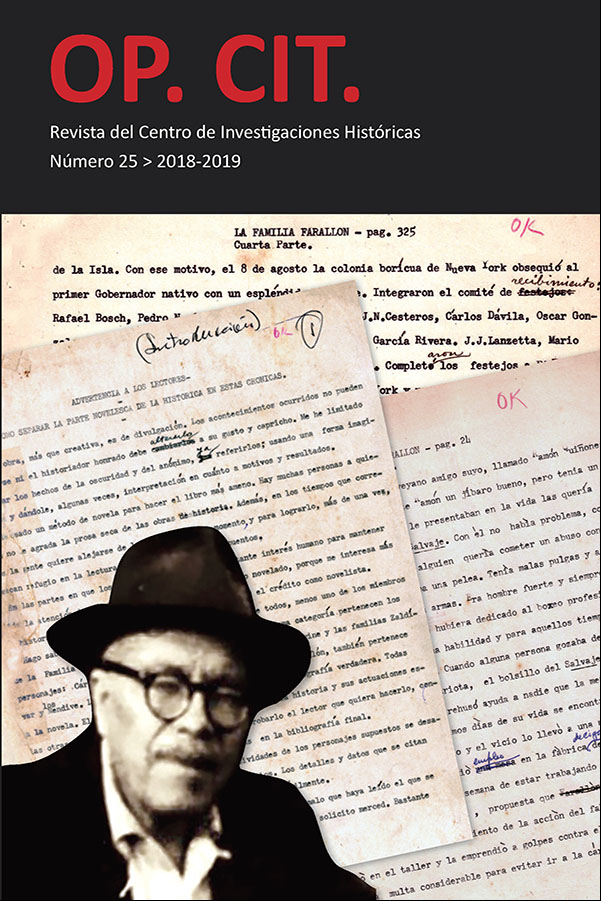Abstract
The article is a study of the Bernardo Vega‘s manuscript focusing on the Hispanic discourse of desire that runs across the entire document and tends to defeat its stated purpose of building a Puerto Rican national memory. This Spanish ancestry pride surprisingly takes shape not in the island, but in New York. It is a Hispanic identity built abroad, in the exile, unlikely to find a local Puerto Rican counterpart. Vega‘s construction of the fictitious Farallón family saga, written to enhance his version of the Puerto Rican exile experience, attempts at capturing the liberal democratic tradition he extracts from Spanish historical accounts and assumes a shared pride of a common origin among Spanish speaking people. The thinking and acting subject in this manuscript is usually the New York Spanish speaking group, or, in more radical moments, the Spanish speaking tobacco workers.

